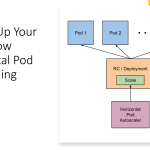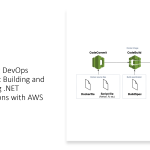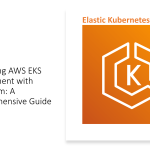Introduction
The world of software development is continuously evolving, and one of the key drivers of this evolution is the need for speed, agility, and security. The DevSecOps approach is gaining traction, as it integrates security practices into the DevOps pipeline, ensuring that applications are developed and deployed in a secure and compliant manner. Microsoft Azure provides a comprehensive suite of tools and services that supports this approach, making it easier for development teams to adopt DevSecOps practices. In this article, we will explore the DevSecOps landscape in Azure and how it can help you improve the security posture of your development process.
Understanding the Azure DevSecOps Landscape
Azure DevOps is a powerful platform that offers a wide range of services that can be integrated into your development pipeline to facilitate a DevSecOps approach. Some of the key components of the Azure DevSecOps landscape include:
- Azure Repos: A Git-based source code repository for version control.
- Azure Boards: Project management and work item tracking.
- Azure Pipelines: A continuous integration (CI) and continuous deployment (CD) service for building, testing, and deploying applications.
- Azure Artifacts: A package management service to share code and packages.
- Azure Test Plans: A service for planning, executing, and tracking manual and automated tests.
- Azure Monitor: A monitoring and diagnostics service for applications and infrastructure.
- Azure Security Center: Provides unified security management and threat protection across your Azure resources.
- Azure Policy: A service to enforce organizational policies and compliance across resources.
- Azure Active Directory (AAD): Identity and access management for applications and users.
- Azure Key Vault: A service for securely storing and accessing secrets, keys, and certificates.
- Azure DevOps Extension Marketplace: A marketplace for third-party extensions and tools to enhance Azure DevOps capabilities.
Integrating GitHub Advanced Security
For organizations that use GitHub as their primary code repository, Azure DevOps can seamlessly integrate with GitHub Advanced Security features. This provides additional layers of protection, such as:
- Code scanning: Scans your code for vulnerabilities and security issues using CodeQL, a powerful code analysis engine.
- Secret scanning: Identifies sensitive information, such as API keys and tokens, accidentally committed to your repositories and alerts you to take remedial action.
- Dependency review: Provides insights into your dependencies, helping you manage security vulnerabilities, licensing, and more in your dependency graph.
By integrating GitHub Advanced Security into the Azure DevSecOps landscape, teams can leverage these advanced features to further enhance their security posture.
The Benefits of Adopting a DevSecOps Approach in Azure
Embracing the DevSecOps approach in Azure offers several key benefits for organizations:
- Enhanced Security: By integrating security practices throughout the development process, potential vulnerabilities and issues can be identified and addressed early, reducing the risk of security breaches.
- Faster Deployment: Automated security checks and validations within the CI/CD pipeline enable teams to deploy applications more quickly and with greater confidence in their security.
- Improved Compliance: Azure Policy and Azure Security Center help ensure that your resources remain compliant with organizational policies and regulatory requirements.
- Streamlined Collaboration: Azure DevOps provides a centralized platform that fosters collaboration between development, security, and operations teams, promoting a shared responsibility for application security.
Conclusion
The DevSecOps approach is transforming the way organizations develop and deploy secure applications. By leveraging the tools and services offered by Azure, teams can create a robust DevSecOps pipeline that integrates security practices throughout the development lifecycle. With a strong focus on security, compliance, and collaboration, Azure DevOps empowers organizations to build and deploy applications that are not only fast and reliable but also secure and compliant with industry standards.
By adopting the DevSecOps methodology in Azure, organizations can significantly reduce the risk associated with security vulnerabilities, improve their overall security posture, and establish a culture of shared responsibility among development, security, and operations teams. As the DevSecOps landscape continues to evolve, it is essential for organizations to stay up to date with the latest tools, techniques, and best practices to ensure their applications remain secure and compliant in an increasingly complex digital environment.
As we’ve seen in this article, Azure provides a comprehensive suite of services that support a DevSecOps approach, making it an ideal platform for organizations looking to embrace this powerful methodology. With Azure DevOps and GitHub Advanced Security, development teams can effectively integrate security practices into their pipelines, fostering a more secure and efficient application development process. By embracing the DevSecOps landscape in Azure, you can ensure that your organization remains at the forefront of secure, agile software development.
In this article, we have covered the Azure DevSecOps landscape and the benefits of adopting this approach. To learn more and dive deeper into specific topics, here are some useful reference links:
- Azure DevOps Documentation: A comprehensive guide to using Azure DevOps services, including Azure Repos, Azure Boards, and Azure Pipelines. https://docs.microsoft.com/en-us/azure/devops/user-guide/overview
- GitHub Advanced Security: Learn more about the features and benefits of GitHub Advanced Security and how to integrate it with Azure DevOps. https://docs.github.com/en/github/finding-security-vulnerabilities-and-errors-in-your-code/about-github-advanced-security
- Azure Security Center: Understand the features and capabilities of Azure Security Center for managing security and compliance across your Azure resources. https://docs.microsoft.com/en-us/azure/security-center/security-center-introduction
- Azure Policy: Get started with Azure Policy to enforce organizational policies and compliance across resources. https://docs.microsoft.com/en-us/azure/governance/policy/overview
- Azure Active Directory: Learn about Azure Active Directory (AAD) and how it can help you manage identity and access for your applications and users. https://docs.microsoft.com/en-us/azure/active-directory/fundamentals/active-directory-whatis
- Azure Key Vault: Understand the capabilities of Azure Key Vault and how to securely store and access secrets, keys, and certificates. https://docs.microsoft.com/en-us/azure/key-vault/general/overview
- Microsoft’s DevSecOps Recommendations: Microsoft’s guide to incorporating security practices into DevOps processes. https://www.microsoft.com/en-us/securityengineering/devsecops
These resources will provide you with more in-depth information on the various components of the DevSecOps landscape in Azure and how to implement them in your organization.



